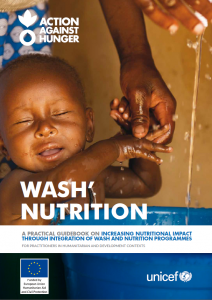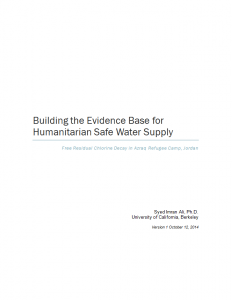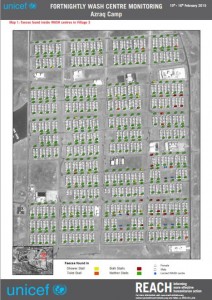
A practical guidebook on increasing nutritional impact through integration of WASH and Nutrition programmes. It is meant for practitioners in humanitarian and development contexts.
Tags: Capacity Building, Child Friendly Facilities, Community Led Total Sanitation (CLTS), Cross Cutting, Disease Vector Control, Human Right to Water / Sanitation, Hygiene Promotion, Protection, Solid Waste Management, WASH Assessments, WASH Coordination, WASH Monitoring, WASH Programme Health and Safety, WASH Strategy Development, and Water Supply. Locations: Africa, Asia and the Pacific, Central Asia, Europe, Middle East, and South-West Asia. Languages: English. Organisations: ACF.

Current emergency safe water guidelines are based on little field evidence. We launched an observational study on chlorine decay in the Azraq refugee camp, Jordan in July-August 2014 in order to: i) develop evidence-based guidelines for centralized batch chlorination in humanitarian operations; and ii) identify factors affecting the safe water chain. This study builds on earlier work from South Sudan and adds to the evidence base that study initiated.

This document provides a snapshot of WASH service provision in Azraq Refugee Camp undertaken on the 15th – 16th February 2015. The document document provides an overview of the conditions in 912 WASH blocks with a focus on structural integrity, safety, access, and cleanliness.
 English
English



